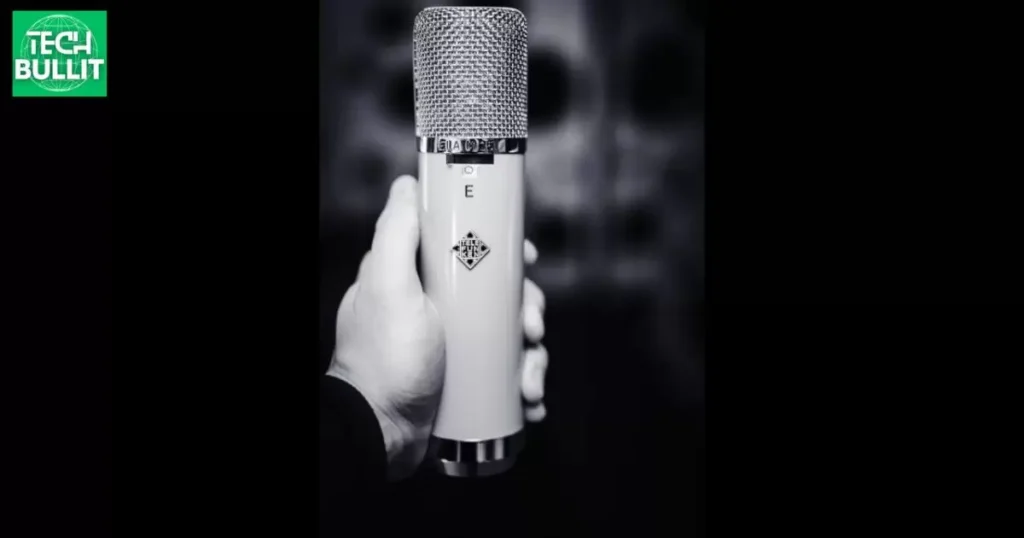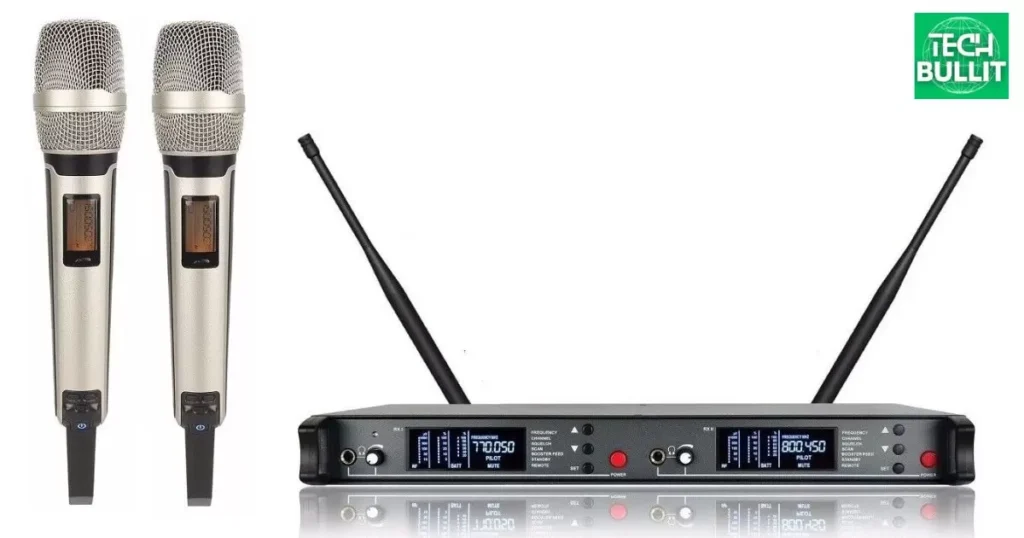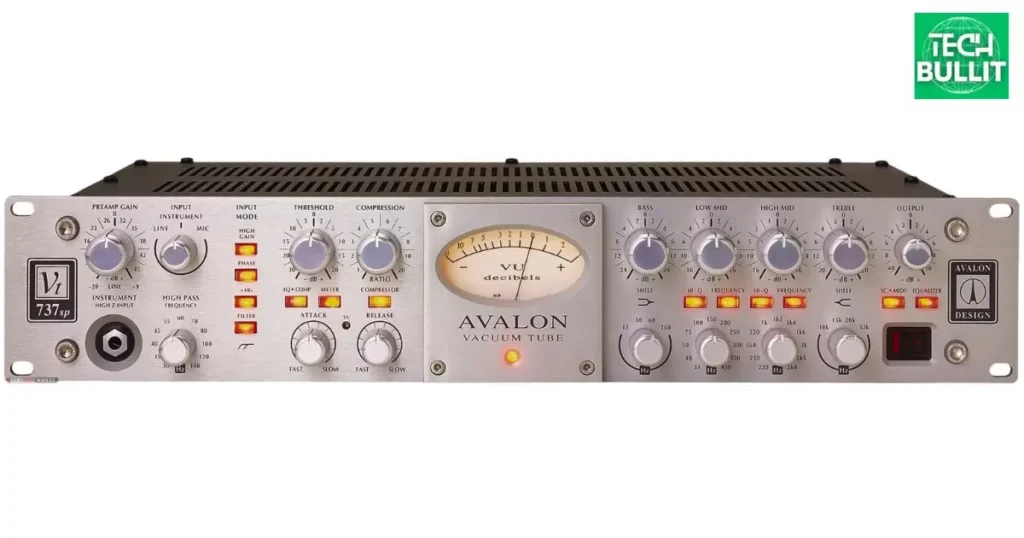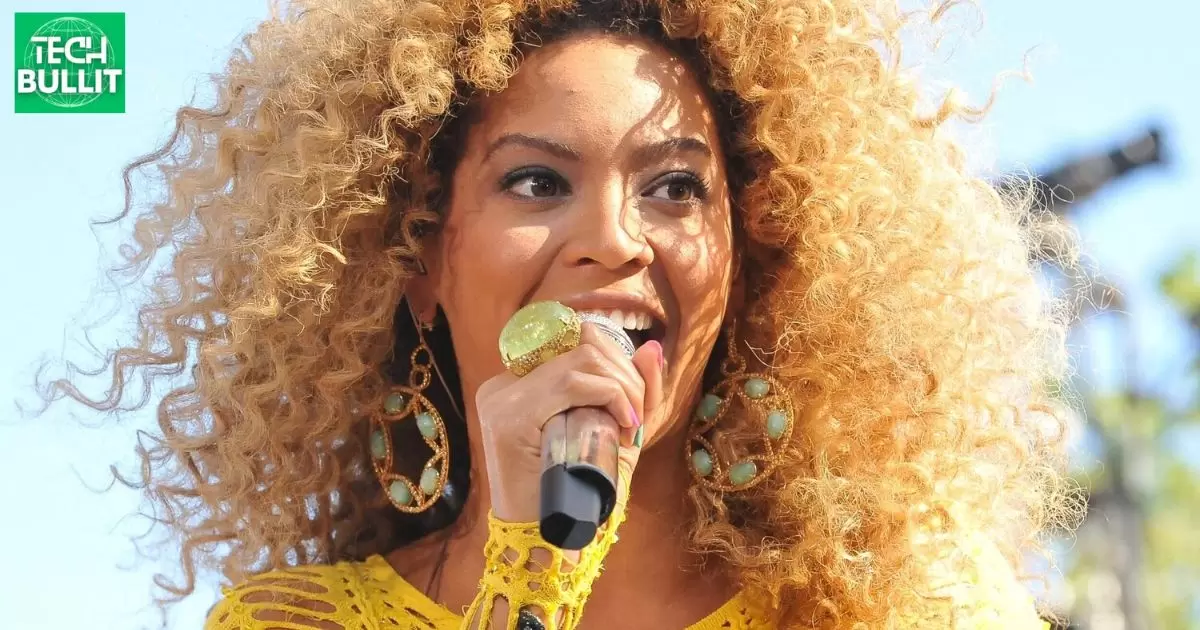Mics convert sound waves into electrical signals. Beyoncé is a famous singer who uses different microphones for her recordings and performances
Uncover the secret behind the burning question: What Microphone Does Beyonce Use? Dive into her sonic prowess and discover the Shure SM7B, the microphone that amplifies her extraordinary voice.
This makes every note and lyric a mesmerizing experience. Explore the gear behind the Queen’s iconic sound and elevate your appreciation for the industry-standard microphone she entrusted.
Beyoncé uses different microphones for her recordings and performances, such as:
Telefunken ELA M 251: A high-quality microphone that captures her vocals clearly and warmly.
Sennheiser SKM 9000: A custom-made golden microphone she uses on stage for its reliability and sound quality.
Avalon VT-737sp: A device that enhances her voice with tube compression and EQ Shure SM58: A classic microphone she sometimes uses in the studio for its durability and versatility.
Beyoncé’s Microphone Choices
Beyoncé is a pop and hip-hop singer who uses various microphones for her recordings and performances. Beyonce is a pop and hip-hop singer who uses various microphones for her recordings and performances. According to Equip Board, some of the microphones she has used are:

Telefunken ELA M 251 Condenser Microphone: One of Beyoncé’s primary microphones. She can be seen using it for “Partition” in this video at 0:57. The ELA M 251 was also used to record Beyoncé’s vocals on Coldplay’s “Hymn for the Weekend”, as mentioned by A Head Full of Dreams co-producer Rik Simpson.

Sennheiser SKM 9000 Wireless Microphone: Beyoncé started working with the Sennheiser Digital 9000 system on her Formation tour and has used it ever since. She uses a custom golden SKM 9000 transmitter with an MD 9235 capsule.

Avalon VT-737sp Mic Preamp: Used on EVERYTHING IS LOVE, as stated by producer Stuart White in this interview. He recorded both Beyoncé and Jay-Z with his “Telefunken mic, Avalon mic pre, and Tube Tech compressor. That was the chain for the entire album on both of them”1.
Shure SM58 Dynamic Microphone: Used “occasionally” in the studio, particularly on “Don’t Hurt Yourself”, as mentioned by producer Stuart White in this article about Lemonade production.
These are some of the microphone choices that Beyoncé has made over the years. She is known for her dynamic, powerful, and warm vocals, and these microphones help her achieve her desired sound. Some of the microphones she has used include the Microphone Does Ninja Use, enhancing her performances with unparalleled audio quality.
Evolution over Time
Evolution over time is the process by which living organisms change their characteristics and diversity over generations. Evolution is driven by natural selection, which is the differential survival and reproduction of individuals with certain traits that are better adapted to their environment. Evolution explains how life on Earth originated and diversified into millions of species, including humans.
Some of the evidence for evolution over time is:
Fossils: Fossils are the preserved remains or traces of ancient organisms. Fossils show how different species have changed over time, and how they are related to each other
Comparative anatomy: Comparative anatomy is the study of similarities and differences in body structures. Comparative anatomy reveals how different species share common features that indicate a common ancestor. It also reveals how they have evolved unique features that suit their specific functions.
Molecular biology: Molecular biology is the study of living cells’ molecules, such as DNA, RNA, and proteins. Molecular biology reveals how different species share common genetic sequences that indicate a common origin. It also reveals how they have accumulated mutations that result in genetic variation
Studio microphone
Studio microphones convert sound waves into electrical signals for recording or broadcasting. Studio microphones are used by musicians, singers, podcasters, voice actors, and other audio professionals to capture high-quality sound in a studio environment. There are different types of studio microphones, such as:
Dynamic microphones
These microphones use a coil of wire and a magnet to generate an electrical signal when sound waves hit a thin diaphragm. Dynamic microphones are durable, versatile, and feedback resistant. They are often used for recording loud sounds, such as drums, guitars, and vocals.
Condenser microphones
These microphones use a capacitor to store an electrical charge that varies when sound waves hit a thin diaphragm. Condenser microphones require a power source, such as battery or phantom power, to operate. They are more sensitive, accurate, and detailed than dynamic microphones. They are often used for recording soft sounds, such as acoustic instruments, vocals, and ambient noise.
Ribbon microphones
These microphones use a thin metal ribbon suspended in a magnetic field to generate an electrical signal when sound waves hit it. Ribbon microphones have warm, smooth, and natural sound. They are often used for recording vintage sounds, such as brass, strings, and vocals. Ribbon microphones include the Beyer Dynamic M160 and the Royer R-121.
USB microphones:
These microphones rely on a digital signal processor to convert sound waves into digital data that can be transferred to a computer via a USB cable. USB microphones are convenient, easy to use, and compatible with most software. They are often used for recording podcasts, voice-overs, and online streaming. USB microphones include the Blue Yeti and the Rode NT-USB.
Live Performance Microphones
Live performance microphones convert sound waves into electrical signals for amplification or broadcasting purposes. Live performance microphones are used by singers, musicians, speakers, and other performers to deliver high-quality sound in an interactive setting.
Exploration of live microphones.
Microphones used during live shows convert sound waves into electrical signals for amplification or broadcasting purposes. There are different types of microphones suitable for different applications and preferences.
Factors influencing live microphone selection.
Live microphone selection is influenced by several factors, such as:
The sound source: The type, size, volume, and frequency range of the sound source determine the most suitable microphone for capturing it.
The environment: The acoustics, noise level, and feedback potential of the environment affect the choice of microphone directionality and sensitivity.
The application: The purpose, style, and preference of the performance or presentation influence the choice of microphone design and features
Collaborations with Brands
Collaborations with brands are strategic partnerships between two or more brands that aim to create value for both parties and their customers. Collaborations with brands can take various forms, such as co-branding, co-marketing, co-creation, or co-selling. Some of the benefits of collaborations with brands are:
- Expanding the brand’s reach and awareness to expanded audiences and markets
- Sharing marketing and production costs and resources
- Leveraging each partner’s strengths and expertise
- Enhancing brand image and reputation
- Offering unique and innovative products or services to customers
- Generating buzz and excitement among fans and the media
Frequently Asked Questions
What microphone does Beyonce use for recording?
Beyonce uses a Telefunken ELA M 251 condenser microphone for recording. It is a high-quality microphone that captures her vocals clearly and warmly.
What microphone does Beyonce use for live performances?
Beyonce uses a Sennheiser SKM 9000 wireless microphone for live performances. It is a custom-made golden microphone that she uses on stage for its reliability and sound quality.
What microphone preamp does Beyonce use?
Beyonce uses an Avalon VT-737sp mic preamp. It enhances her voice with tube compression and EQ.
What microphone did Beyonce use for lemonade?
Beyonce used a Shure SM58 dynamic microphone for some songs on Lemonade. It is a classic microphone that she sometimes uses in the studio for its durability and versatility.
What microphone did Beyonce use for Coldplay’s Hymn for the Weekend?
Beyonce used a Telefunken ELA M 251 condenser microphone for Coldplay’s Hymn for the Weekend. It is the same microphone that she uses for recording her own songs.
What microphone did Beyonce use for the Super Bowl halftime show?
Beyonce used a Sennheiser SKM 9000 wireless microphone for the Super Bowl halftime show. It is the same microphone she uses for live performances.
What microphone did Beyonce use at Coachella?
Beyonce used a Sennheiser SKM 9000 wireless microphone at Coachella. It is the same microphone she uses for live performances.
What microphone did Beyonce use for the Lion King soundtrack?
Beyonce used a Telefunken ELA M 251 condenser microphone for the Lion King soundtrack. It is the same microphone she uses for recording her own songs.
What microphone did Beyonce use for the Homecoming documentary?
Beyonce used a Sennheiser SKM 9000 wireless microphone for the Homecoming documentary. It is the same microphone she uses for live performances.
What microphone did Beyonce use for the Black Is King film?
Beyonce used a Telefunken ELA M 251 condenser microphone for the Black Is King film. It is the same microphone that she uses for recording her own songs.
Conclusion
Beyoncé is one of the most successful and influential artists of our time. Her vocals are dynamic, powerful, and warm.
To capture her voice in the studio and on stage, she uses a variety of microphones that suit her needs and preferences. Some of the devices Beyoncé has used include:
The Telefunken ELA M 251 is a vintage stereo condenser microphone that delivers rich and detailed sound. She used this microphone for “Partition” and “Hymn for the Weekend”.
The Sennheiser SKM 9000 is a wireless microphone with a custom-made golden transmitter and an MD 9235 capsule. She started using this microphone on her Formation tour and has used it ever since.
The Shure SM58 is an excellent dynamic microphone. She used this microphone occasionally in the studio, especially on “Don’t Hurt Yourself”.
These are some of the microphones Beyoncé uses to showcase her vocal talent and express her artistic vision. While they are not the only ones, they are among the most notable and reliable.

Lucas Steele is an experienced professional with 10 years in education. “Teachbullit” is his domain, reflecting expertise in teaching and learning.









